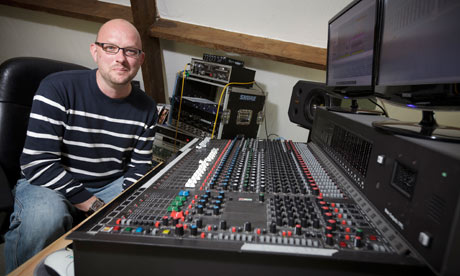
I stare blankly at the huge and impenetrable grid of knobs, dials and buttons in front of us. "This is a lovely, old analogue Amek BCIII console," says Alex Pilkington fondly, a bit like a farmer introducing someone to his prize cow.
Mounted on a trestle table below two computer monitors and flanked by a couple of matt black speakers on stilts, his mixing desk dominates the attic room like a church altar. Beyond, sunlight streams through a window, outside which a tractor trundles across a ploughed field.
"It has eight inputs and 16 outputs," he continues. I nod, inwardly wrestling with a sudden urge to twiddle all the knobs at once.

